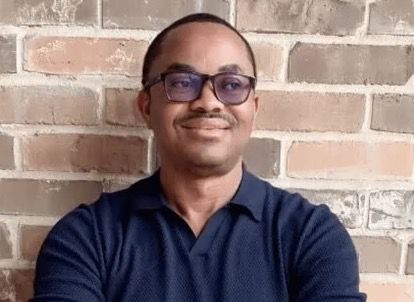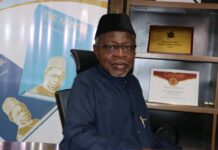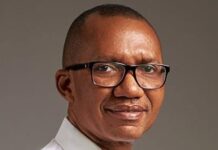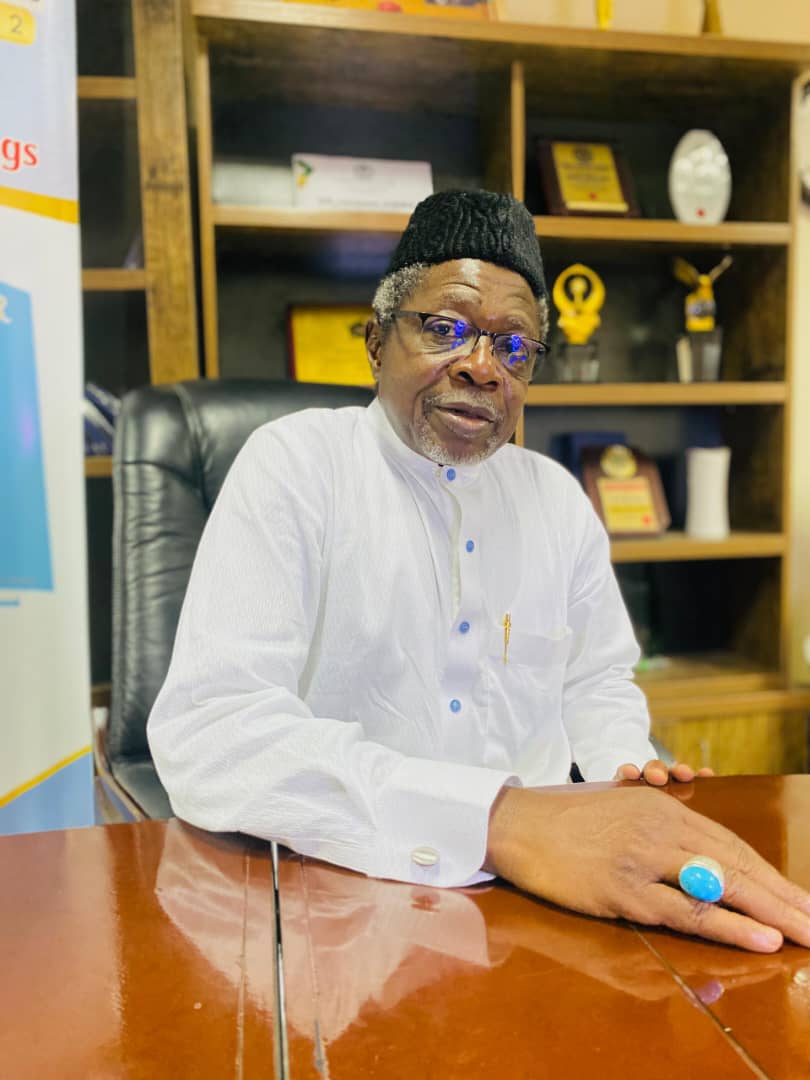Tinubu, Kanu and the Legacy of Nigeria’s Igbo problem, by Osmund Agbo
It’s been over two years since Bola Ahmed Tinubu assumed office as Nigeria’s president. For many of us who had grown tired of the vindictive ethnonationalism that defined Muhammadu Buhari’s reign, Tinubu’s emergence sparked a flicker of hope. For all his flaws, Tinubu had always styled himself as a bridge-builder, a master political negotiator, a man who built coalitions across Nigeria’s fractious tribal and religious lines. But that hope is slowly dissipating in a region of the country, disillusioned by a familiar tale: the continued, unjust detention of Nnamdi Kanu.
Let me be clear from the outset: I am not an apologist for Kanu, nor have I ever been a supporter of IPOB’s often inflammatory methods. Like many Igbos, I sympathize with the legitimate frustrations that birthed the movement: marginalization, structural injustice, and the failure of the Nigerian state, but I have never subscribed to the notion that meaningful change comes from reckless rhetoric or the weaponization of identity. In fact, IPOB’s authoritarian tendencies and internal contradictions have too often inflicted more severe hardship upon the very communities the group claims to protect.
Yet, however flawed their tactics, none of that justifies what has now become the longest-running case of state-sponsored injustice in Nigeria’s recent history. Nnamdi Kanu has been held in illegal detention since June 2021, and this injustice persists under a new administration that promised change but seems to be echoing the old refrain of regional bias and selective justice.
If someone had told me that Kanu would still be languishing in custody two years into President Bola Ahmed Tinubu’s tenure, I would have found it difficult to believe. Under Muhammadu Buhari’s regime, his indefinite incarceration, albeit shameful, was entirely predictable. Buhari’s administration orchestrated Kanu’s extraordinary rendition from Kenya, an act that violated international law and due process but he was determined to break him by any means necessary.
READ ALSO: Feeding the Hungry: Reno, FFK, and the Machiavellian feast, by Osmund Agbo
This is the same administration that granted amnesty to self-confessed terrorists, facilitated their “rehabilitation,” and celebrated their reintegration into society. Yet, it treated Kanu as if he posed an existential threat greater than Boko Haram or ISWAP. The contradiction is not just galling, it is morally reprehensible.
I have heard some of my colleagues from both the North and Southwest, especially the North, argue often with unrestrained vehemence, that Kanu’s rhetoric and inflammatory behavior disqualify him from sympathy. It’s true that Kanu has been reckless in his utterances, and he has insulted many across Nigeria’s ethnic and political spectrum. But such vitriol, however distasteful, cannot justify the flagrant disregard for human rights and due process we have seen in his case. Especially when we juxtapose his treatment with the impunity granted to violent religious extremists, men who have left a trail of blood and displacement across the Northeast and beyond.
Let us recall: In 2021, Nigeria’s then-Attorney General, Abubakar Malami, announced that the government had intelligence linking over 400 individuals to the financing of Boko Haram. He promised investigations and prosecutions. Predictably, nothing came of it. No convictions. No meaningful public trials. The names of these supposed financiers vanished into the fog of official amnesia.
Contrast that with how the Nigerian state continues to manipulate judicial processes to prolong Kanu’s detention. The Tinubu government has inherited and actively sustained this travesty, even in the face of mounting legal and moral opposition. In July 2022, the United Nations Human Rights Council, through its Working Group on Arbitrary Detention, demanded Kanu’s immediate release and compensation. A Kenyan High Court has likewise declared his arrest and forced rendition a violation of both Kenyan and international law.
READ ALSO: The myth of the self-made man, by Osmund Agbo
If Nigeria is a nation governed by laws, as we so often proclaim, why do these judgments count for nothing?
Even more confounding is the federal government’s continued embrace of Operation Safe Corridor, a program launched in 2016 to rehabilitate and reintegrate so-called “repentant” Boko Haram combatants. Under this initiative, individuals responsible for mass killings, rape, destruction of entire communities, and the displacement of millions are given stipends, vocational training, and a path back to society.
According to reports, ex-fighters receive 20,000 naira monthly, while many of their victims are dead while others are left languishing in squalid internally displaced persons (IDP) camps with little hope of restitution or resettlement.
According to a UNDP report years ago, while direct violence in the insurgency has killed approximately 35,000 people in three northeastern states, over 314,000 more have died from indirect causes—starvation, lack of healthcare, and the collapse of social systems. Millions of Nigerians have been displaced. Yet the architects of this humanitarian catastrophe are shown more mercy than a man who, however provocative, was armed only with a microphone and a vision of self-determination.
READ ALSO: The gift of imperfection, by Osmund Agbo
Why is it that when violent religious extremists ravage communities, burn schools, kidnap schoolchildren, and behead soldiers, the state preaches understanding and forgiveness, but when an Igbo man calls out injustice, he becomes a threat to national security?
The answer, sadly, lies in a deeper, more uncomfortable truth: the persistent othering of the Igbo people in the Nigerian project. The disdain for Nnamdi Kanu is not solely about his actions or words, it is emblematic of a broader reluctance to reckon with Igbo grievances. Whether in federal appointments, infrastructure allocation, or matters of justice, the Southeast continues to receive the short end of the stick.
Prominent Igbo organizations such as Ohanaeze Ndigbo and the United Igbo Elders Council (UNIEC) have repeatedly petitioned the federal government to release Kanu. The Rising Sun Foundation and other diaspora advocacy groups have added their voices. These calls are not merely acts of ethnic solidarity, they are appeals to a nation that claims to be governed by law and guided by conscience.
Even within the broader Nigerian context, there are precedents for reconciliation with agitators. Sunday Igboho, a Yoruba nationalist, was released after a period of detention in Benin Republic. His case, while not identical, similarly involved calls for ethnic self-determination. His freedom, though welcome, highlights the selective enforcement of justice when viewed alongside Kanu’s continued imprisonment. What is required now is not more legal acrobatics or political posturing. It is moral courage.
READ ALSO: The truth about truth, by Osmund Agbo
A nation cannot move forward if it continues to treat one ethnic group as expendable. Nigeria cannot talk about unity while subjecting one of its major ethnic nationalities to this level of systemic humiliation. And Tinubu, who campaigned on the promise of renewed hope, risks becoming the latest custodian of a dangerous legacy—one steeped in double standards and ethnic bigotry.
President Tinubu must demonstrate that his government is not merely a continuation of Buhari’s discriminatory legacy. He must rise above the politics of vendetta and show Nigerians, particularly the Igbos, that the rule of law applies equally to all, regardless of ethnic origin or political inconvenience.
The continued detention of Nnamdi Kanu is not just a legal misstep, it is a political and moral failure. It deepens the alienation of a vital region of Nigeria. It erodes the credibility of a justice system already on life support. And it perpetuates the painful narrative that some lives and liberties matter more than others in today’s Nigeria.
If Tinubu truly wants to be remembered as a statesman, not just another politician, he must rise above the toxic legacy he inherited and release Kanu without further delay. Releasing him won’t solve Nigeria’s deep ethnic divisions, but it could be a meaningful step toward healing, and a bold statement that this government is not beholden to the prejudices of the past.
READ ALSO: The gilded cage of stardom, by Osmund Agbo
Until then, the haunting refrain of injustice will continue to echo loudest, perhaps, in the silence of Aso Rock. History is watching. The Southeast is watching. And many Nigerians, whether they agree with Kanu or not, are watching as well.
Follow the Neptune Prime channel on WhatsApp:
Do you have breaking news, interview request, opinion, suggestion, or want your event covered? Email us at neptuneprime2233@gmail.com





